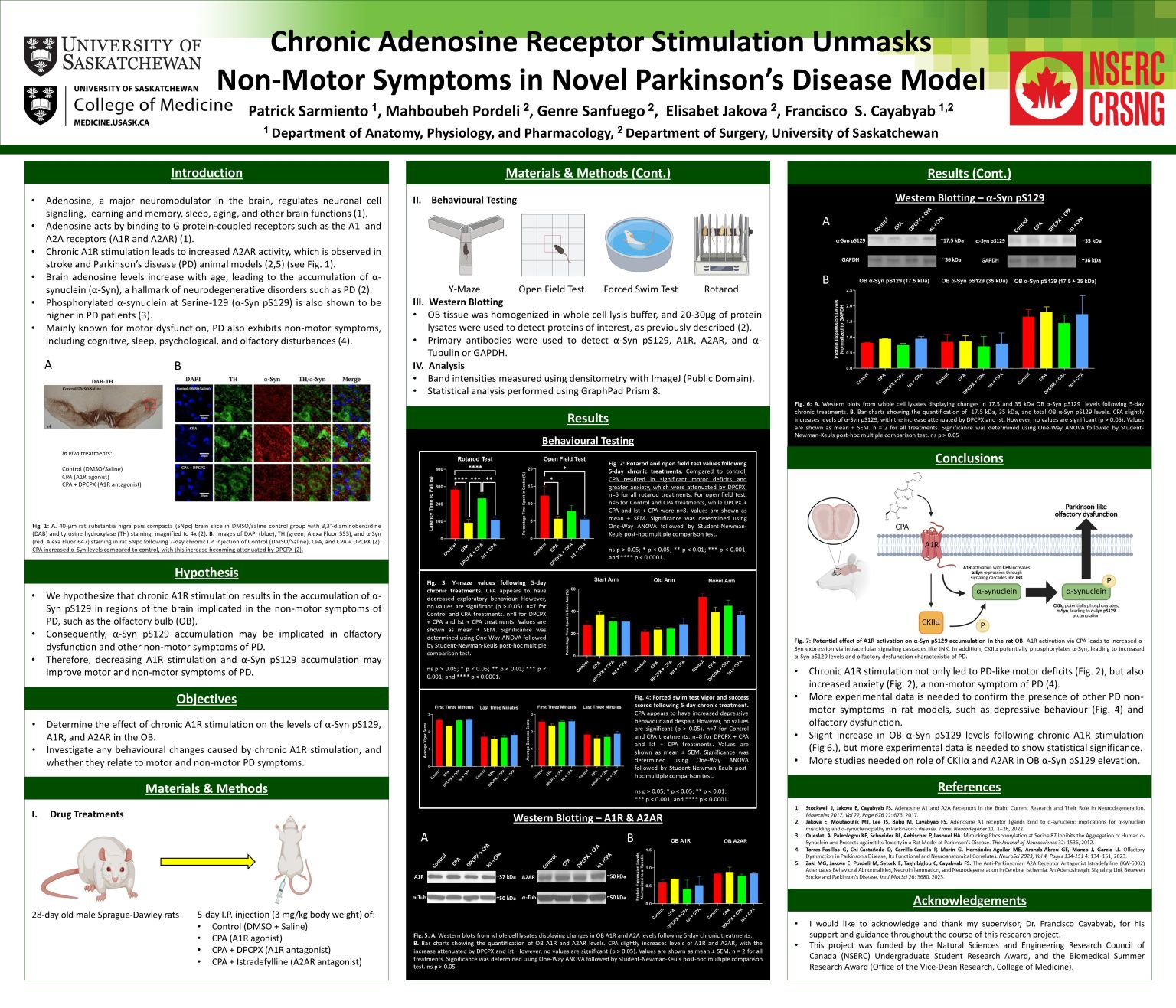
Chronic Adenosine Receptor Stimulation Unmasks Non-Motor Symptoms in Novel Parkinson's Disease Model
Patrick Sarmiento
Commonly identified through motor deficits, many non-motor symptoms also accompany Parkinson’s disease, including psychological changes (e.g. depression, anxiety) and sensory deficits, such as olfactory dysfunction. These symptoms may arise during or even before motor deficits occur, so thorough investigation of these non-motor symptoms in animal models would prove clinically useful. I’ve chosen 28-day old male Sprague-Dawley rats to act as a novel Parkinson’s disease model, induced by administering an agonist for adenosine A1 receptors in the brain. Adenosine, a major neuromodulator, regulates functions such as neuronal cell signaling, sleep, and memory. However, brain adenosine levels increase with age, leading to the accumulation of protein molecular markers of Parkinson’s disease, such as phosphorylated α-synuclein. Rats received chronic administration of adenosine receptor agonists and/or antagonists. Behavioural testing showed significant motor deficits in rats provided with adenosine A1 receptor agonists, indicating Parkinson’s-like motor dysfunction. Behavioural testing also showed that these same rats have greater anxiety, a non-motor symptom of Parkinson’s, with further behavioural testing needed to indicate other psychological changes. Within the rat olfactory bulb, Western blot analysis begins to show greater phosphorylated α-Synuclein levels in rats receiving the adenosine A1 receptor agonist, though more experimentation is needed to show statistical significance.
